Managing Asthma Every Day
Managing Asthma Every Day Infographic image download (JPEG)
Managing Asthma Every Day Infographic download for print (PDF)
An asthma trigger is something that makes symptoms worse. Allergens can worsen symptoms for people who are sensitive to them. Not every allergen is a trigger for everyone with asthma. Understanding what worsens your asthma is a part of getting it under control.
In the home, common asthma triggers include: pet dander; dust mites; cigarette smoke, which can irritate the lungs; pests like rodents and cockroaches. More than 90% of homes have 3 or more allergens.
Schools, like other enclosed spaces, can attract lots of allergens like dust mites, pests, and mold. Work with a healthcare provider to make an asthma action plan. Share it with your child’s: teacher, school nurse, other trusted adults at school.
In the workplace, hundreds of things can trigger asthma, like: metal dust, bleaches, hair dyes. Asthma triggers can change over time. Your body may react differently after repeated exposures, such as at your workplace. Talk to your healthcare provider if your asthma worsens after being at work.
Outdoors, pollen, air pollution, and everyday weather like cold, dry air can set off asthma. Pollen counts tend to be high in the morning. You may want to avoid being outside from 5 to 10 a.m.
Managing triggers is just one part of controlling asthma. Work with a healthcare provider to: make an asthma action plan, keep track of your symptoms and where you are when they occur, learn how to take medicines as prescribed.
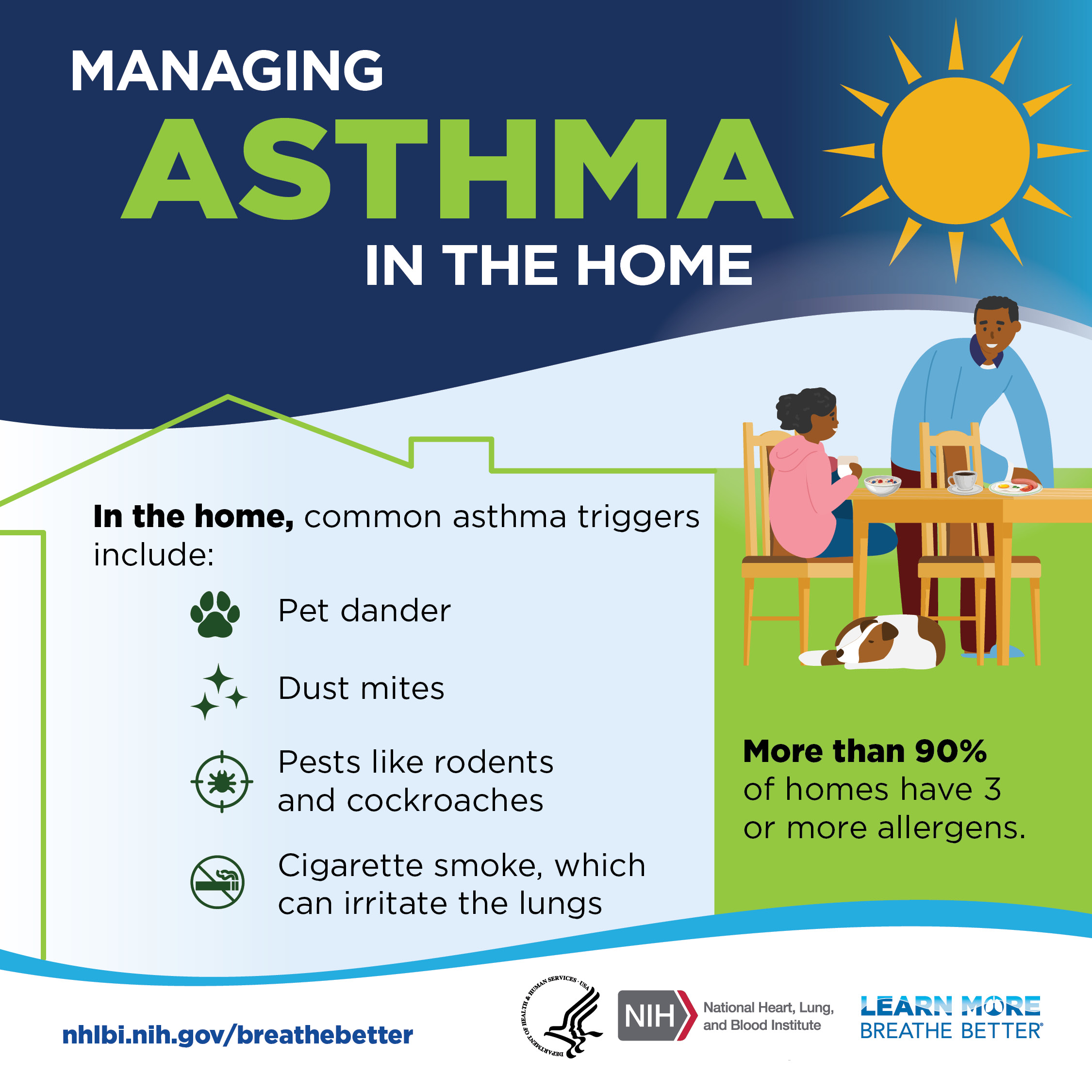

In the home, common asthma triggers include: Pet dander; Dust mites; Pests like rodents and cockroaches; Cigarette smoke, which can irritate the lungs. More than 90% of homes have 3 or more allergens.
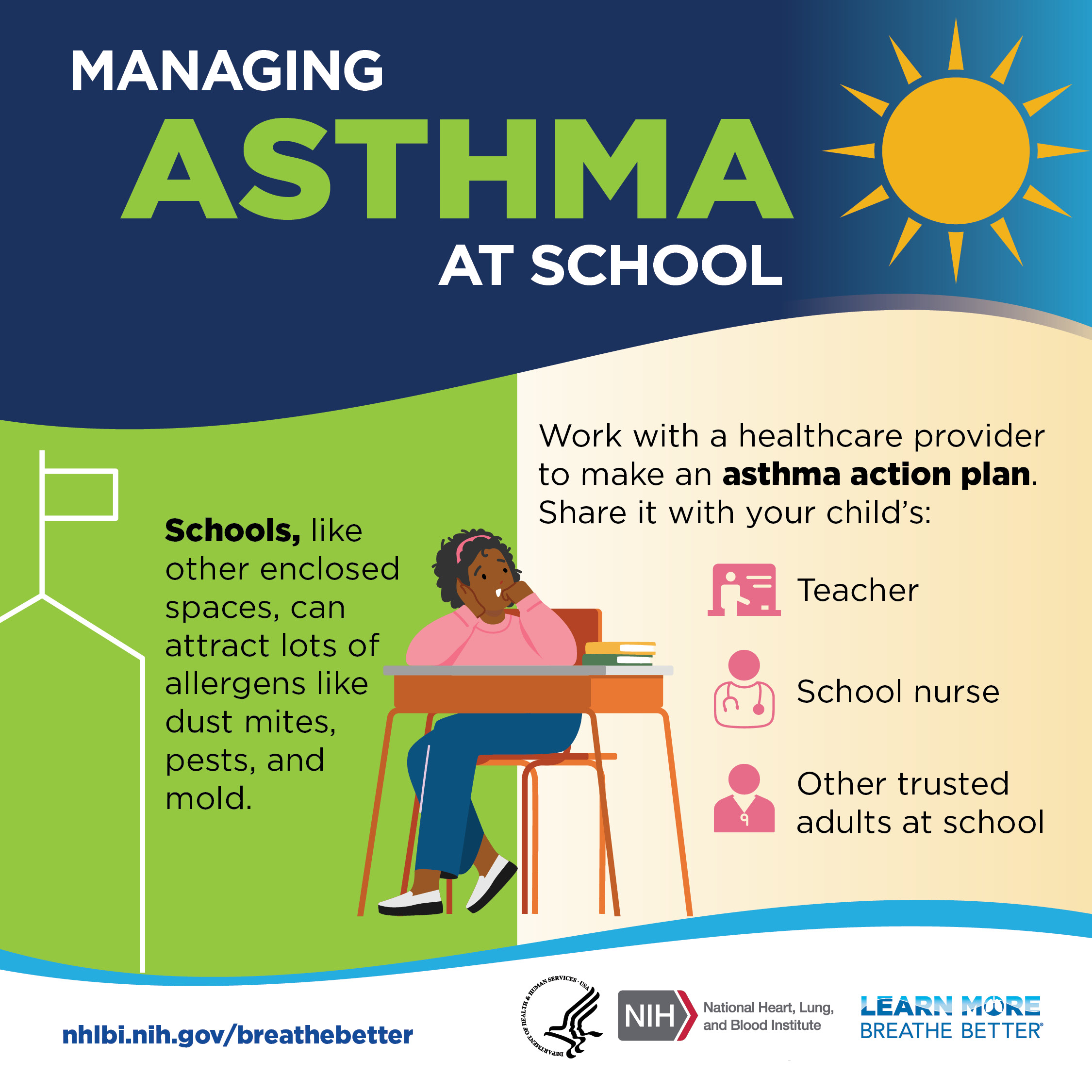

Schools, like other enclosed spaces, can attract lots of allergens like dust mites, pests, and mold. Work with a healthcare provider to make an asthma action plan. Share it with your child’s: Teacher; School nurse; Other trusted adults at school.
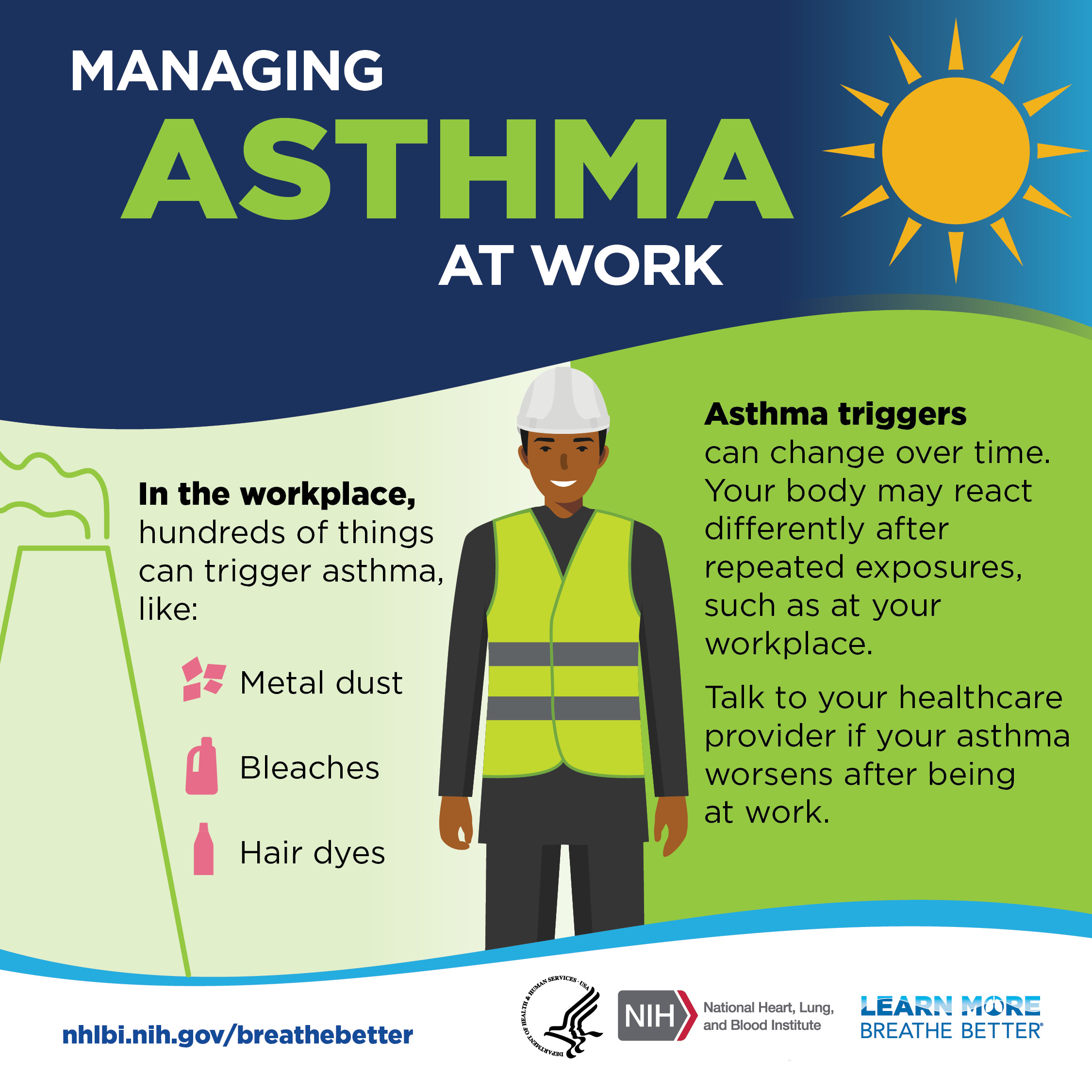

In the workplace, hundreds of things can trigger asthma, like: Metal dust; Bleaches; Hair dyes. Asthma triggers can change over time. Your body may react differently after repeated exposures, such as at your workplace. Talk to your healthcare provider if your asthma worsens after being at work.
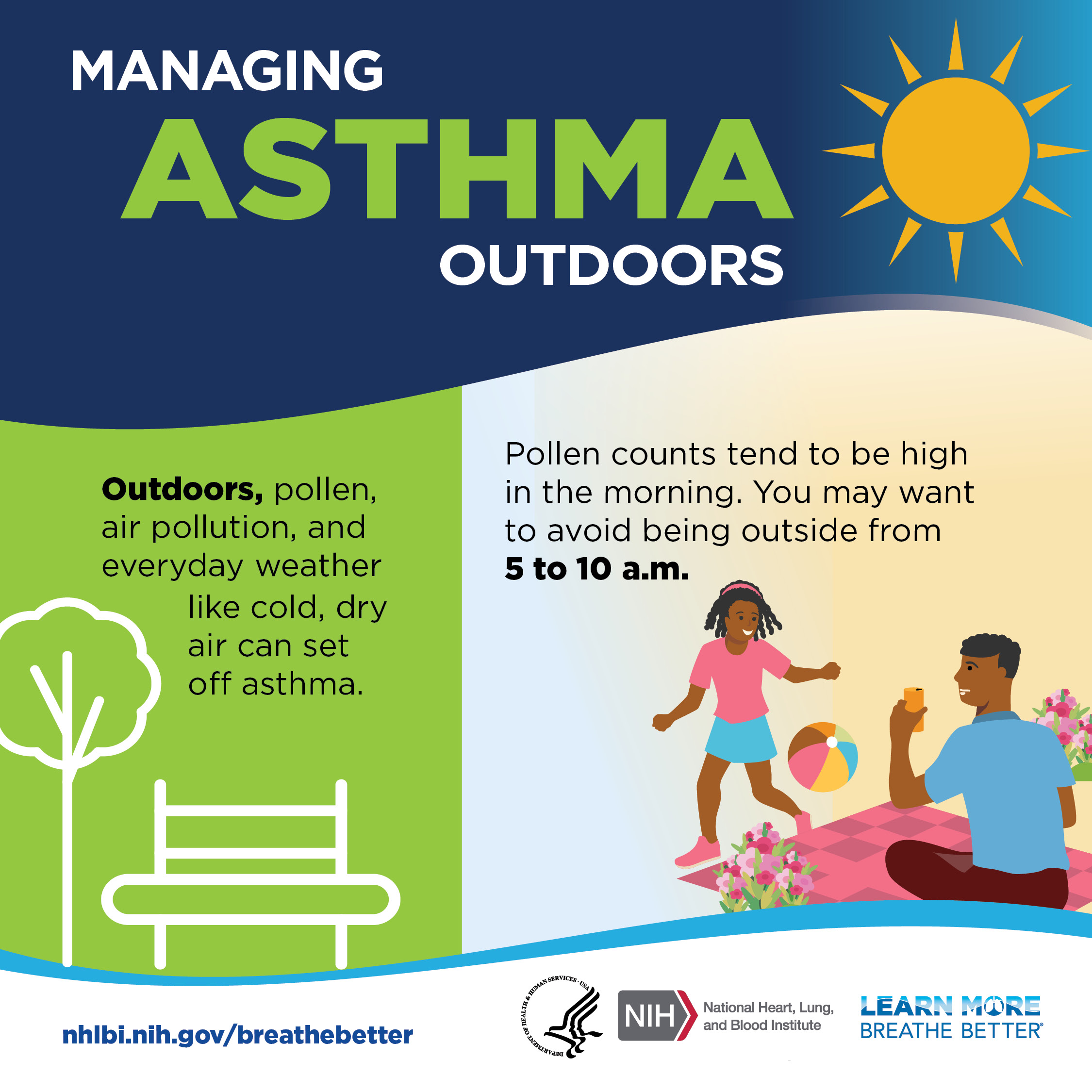

Outdoors, pollen, air pollution, and everyday weather like cold, dry air can set off asthma. Pollen counts tend to be high in the morning. You may want to avoid being outside from 5 to 10 a.m.
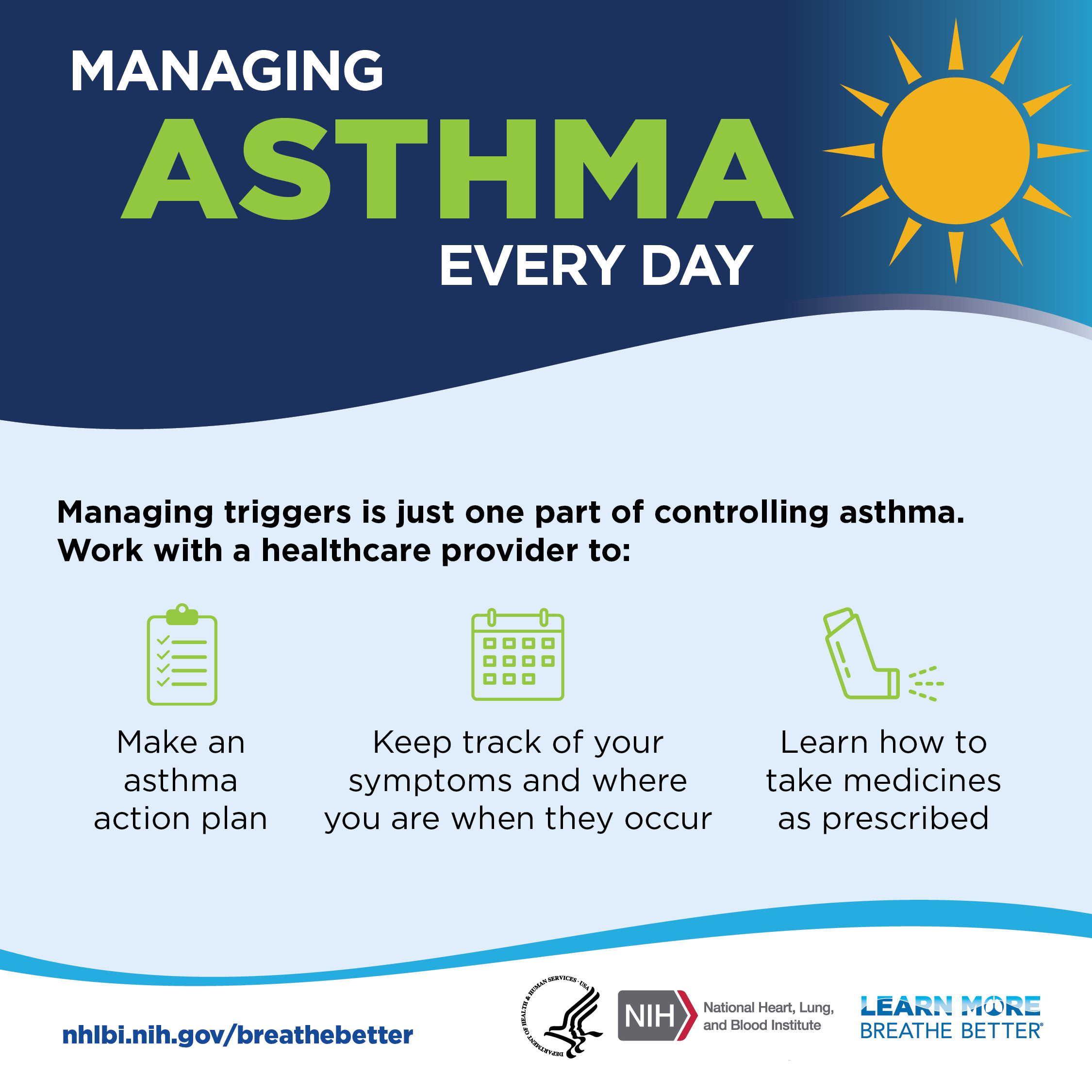

Managing triggers is just one part of controlling asthma. Work with a healthcare provider to: Make an asthma action plan; Keep track of your symptoms and where you are when they occur; Learn to take medicines as prescribed.


